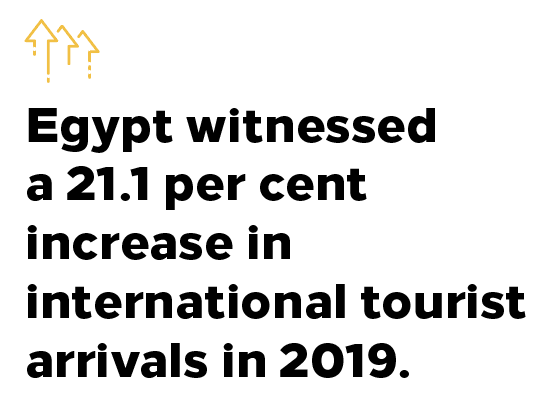- Arbitration
- Banking & Finance
- Capital Markets
- Commercial
- Competition
- Construction & Infrastructure
- Corporate / Mergers & Acquisitions
- Corporate Services
- Corporate Structuring
- Digital & Data
- Dispute Resolution
- Employment & Incentives
- Family Business & Private Wealth
- Innovation, Patents & Industrial Property (3IP)
- Insurance
Find a Lawyer
Book an appointment with us, or search the directory to find the right lawyer for you directly through the app.
Find out more
Level Up: Unlocking Financial Potential In The Middle East
Welcome to this edition of Law Update, where we focus on the ever-evolving landscape of financial services regulation across the region. As the financial markets in the region continue to grow and diversify, this issue provides timely insights into the key regulatory developments shaping banking, investment, insolvency, and emerging technologies.


2025 is set to be a game-changer for the MENA region, with legal and regulatory shifts from 2024 continuing to reshape its economic landscape. Saudi Arabia, the UAE, Egypt, Iraq, Qatar, and Bahrain are all implementing groundbreaking reforms in sustainable financing, investment laws, labor regulations, and dispute resolution. As the region positions itself for deeper global integration, businesses must adapt to a rapidly evolving legal environment.
Our Eyes on 2025 publication provides essential insights and practical guidance on the key legal updates shaping the year ahead—equipping you with the knowledge to stay ahead in this dynamic market.
The leading law firm in the Middle East & North Africa region.
A complete spectrum of legal services across jurisdictions in the Middle East & North Africa.
-
Practices
- All Practices
- Banking & Finance
- Capital Markets
- Commercial
- Competition
- Construction & Infrastructure
- Corporate / Mergers & Acquisitions
- Corporate Services
- Corporate Structuring
-
Sectors
-
Country Groups
-
Client Solutions
Today's news and tomorrow's trends from around the region.
17 offices across the Middle East & North Africa.
Our Services
 Back
Back
-
Practices
- All Practices
- Banking & Finance
- Capital Markets
- Commercial
- Competition
- Construction & Infrastructure
- Corporate / Mergers & Acquisitions
- Corporate Services
- Corporate Structuring
- Digital & Data
- Dispute Resolution
- Employment & Incentives
- Family Business & Private Wealth
- Innovation, Patents & Industrial Property (3IP)
- Insurance
- Intellectual Property
- Legislative Drafting
- Private Client Services
- Private Equity
- Private Notary
- Projects
- Real Estate
- Regulatory
- Tax
- Turnaround, Restructuring & Insolvency
- White Collar Crime & Investigations
-
Sectors
-
Country Groups
-
Client Solutions

- Law Firm
- /
- Insights
- /
- Law Update
- /
- April 2020
- /
- Re-counting stars: Egypt revisits hotel rating criteria
Re-counting stars: Egypt revisits hotel rating criteria
Alia Omran
 Egypt as a tourist destination
Egypt as a tourist destination
In the past couple of years Egypt has become one of the world’s fastest growing tourist destinations. According to the World Tourism Barometer issued by the United Nations World Tourism Organization (‘UNWTO’), in November 2019, Egypt showed a ‘remarkable rebound’ since 2017, with the country witnessing a 21.1 per cent increase in international tourist arrivals in 2019. It scored fourth on highest performance improvement in the 2019 Travel & Tourism Competitiveness Report issued by the World Economic Forum and has also been recognised as the top scorer in the MENA region in environmental sustainability, cultural resources and business travel.
Government’s initiative to support the tourism industry
One of the primary reasons for such development is the reform of the criteria adopted for ranking hotels in Egypt which was implemented through the Ministerial Decree No. 760 of 2019 issued in December 2019 (‘Decree’). The new criteria not only evaluate and classify hotels according to their infrastructure and fixed assets, but also take into account customers’ experience, quality of services, hygiene standards, facilities, staff compliance, environmental implications, and its overall health standards. The purpose of the Decree is to further encourage and boost competition in the hotel and tourism industry by introducing new hospitality criteria which considers global trends such as green tourism, and eco-friendly destinations. Importantly, the promulgation of the Decree was followed by the announcement by Central Bank of Egypt (‘CBE’) in December 2019 to increase its financing plan to the tourism sector from EGP 5 billion to EGP 50 billion (approximately from US$ 317 million to US$ 3 billion) mainly to finance development and renovation of hotels.
What’s new?
Classification of hotels
The Decree prescribes new criteria to classify each type of hotel, as well as staff criteria. These new criteria aim to develop a mechanism to rank hotels, resorts, floating hotels, boutique hotels, safari, and camps. The Decree also includes new types of visitor accommodations, such as heritage hotels, apartment hotels, Dahabeyas (traditional Egyptian sailing ships with four to ten cabins) and eco-lodges.
Criteria for classification of hotels
The evaluation is conducted using a points system. Each criterion is equivalent to a number of points, and the overall score is determined by adding the percentage of points of mandatory and non-mandatory criteria fulfilled against non-compliance of mandatory and non-mandatory criteria. The process of classification is undertaken by qualified inspectors of the Ministry of Tourism who are experienced in assessing hotels and their compliance with the newly set criteria. The new criteria will not only evaluate and classify hotels according to their infrastructure and fixed assets, but will also take into account customers’ experience, quality of services, hygiene standards, facilities, staff compliance, environmental implications, and its overall health standards. The Ministry has also issued a communiqué stating that numerous inspectors from the Hotel Control Department have been trained on the new criteria by UNWTO experts and the use of digital technology that will be used in reporting compliance and evaluation of hotels. This is to ensure transparency and accuracy in implementing the new criteria.
The “Mystery Guest” concept
The Ministry will also adopt the ‘Mystery Guest’ method. The Mystery Guest will use a hotel services as an ordinary guest (unbeknownst to the hotel as the Mystery Shopper) and will provide feedback regarding hotel services and experience. Such feedback will be reflected in the evaluation of the hotel. The Decree suggests that it may use international organisations specialising in providing the Mystery Guest services to classify, or ensure adequate classification of the hotels.
Environmentally friendly and socially responsible initiatives
With a view to encouraging environmentally friendly management, the Ministry intends to motivate companies to abide by environmentally friendly and socially responsible guidelines by offering hotels the Green Star Hotel Certificate, conferred by the Global Sustainable Tourism Council under the auspices of the Ministry’s Green Star Hotel Certification Program. By awarding this certificate, the Ministry aims to increase awareness environmental actions and seek to sustain such actions.
Validity of classification
The classification determined will remain valid for four years. Reclassification is subject to review of Ministry three months prior to the expiry date of the existing classification.
Display of classification
Each hotel must display in a place that is visible to guests its rating as per the latest Classification. A hotel will also be required to publicise its rating whenever it is advertising itself on websites or social media platforms.
It is worth noting that 3-star, 4-star and 5-star hotels shall be given a one year grace period to regularise their status, while 1-star and 2-star hotels shall be given two years.
Conclusion
Given that the hospitality criteria for Egyptian hotels has not been updated since 2006, reforms through the Decree were vital to achieve sustainable tourism consistent with international standards. Tourism has always been one of the key elements of the Egyptian economy, given the country’s rich history and culture, favourable all-year-round weather and prominent geographical features. Therefore, it is important to ensure that the Ministry has a reliable mechanism to monitor the type and quality of services provided to guests, so as to ensure that hotels are being adjudicated to an internationally approved rating system, and to guarantee that guests have a modern and transparent source to decide on their next vacation.
For further information, please contact Ayman Nour (a.nour@tamimi.com).
Stay updated
To learn more about our services and get the latest legal insights from across the Middle East and North Africa region, click on the link below.



